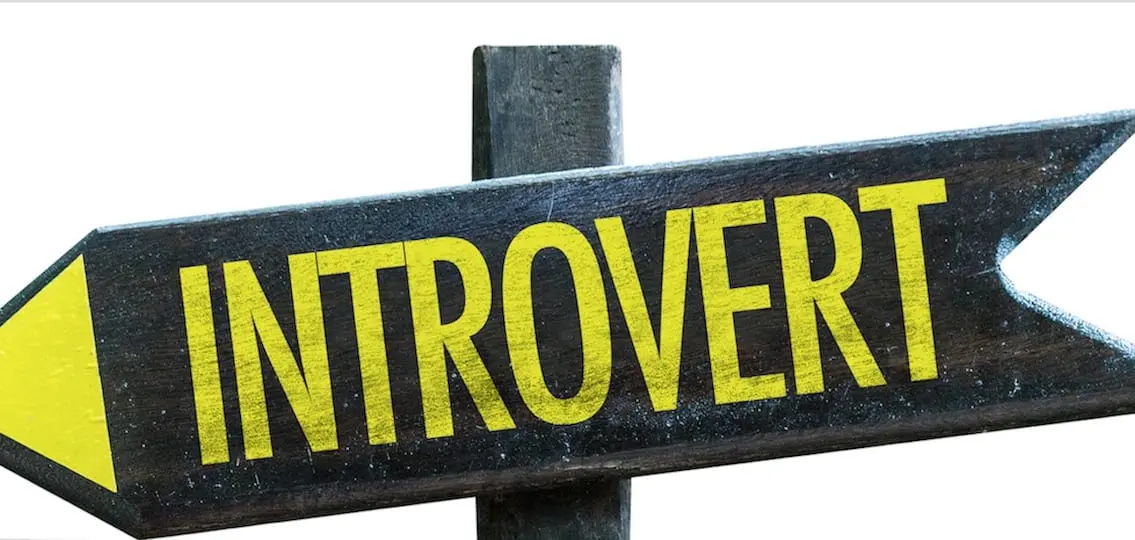Susan Cain’s book Quiet: The Power of Introverts in A World That Can’t Stop Talking changed my life. I’ve always been described as quiet and shy. People said the words in a tone that implied I was “less than,” “not as fun,” or “undesirable,” and over time, I began to believe them. As I got older, I embraced the term “introvert” because it felt more descriptive and less judgmental. Extroverts tend to draw energy from social interaction. Introverts draw energy from solitude. That last one, that’s me.

Being An Introvert In An Extrovert World
So I lived with a dilemma. For years I wondered whether I could “come out of my shell,” as many people suggested. On the one hand, I should try to be more spontaneous and less cautious. On the other hand, I’m supposed to accept and love who I am, which means accepting my quietness. Back and forth I went. How do I find balance?
Friends often say they appreciate my mellow and calm demeanor, but I would still feel embarrassed about being quiet. How can quiet be good when the loud, gregarious and spontaneous people seem to be more valued? I felt lost in this mental and emotional quandary.
This past week, the library finally had a copy of Susan Cain’s Quiet. The beginning was shaky, filled with anecdotes about things extroverts do that frustrate introverts. I was afraid the book would be no more than a series of complaints. Eventually, I got pulled in with the explanation of how our culture came to embrace extroversion over introversion. Then there were stories of famous introverts like Rosa Parks, Ghandi, and Eleanor Roosevelt. As Susan Cain emphasizes that the assets of introverts are noteworthy and can balance the strengths of extroverts, she builds toward a mandate to appreciate introverts as they are.
I’m An Introvert, And I Can Thrive
How did this impact me? It gave me hope. For so long I worked against my temperament, but I can appreciate who I am and still change in ways that I want to change. I don’t always need to be the silent, helpful, and observant one. And I can come out of my shell without becoming louder, but by gaining the confidence that I admire in other people. For those who are uncomfortable with quiet, and don’t appreciate introverts, that’s their loss. I won’t apologize for my nature.
Introverts are undervalued but I won’t accept that anymore. Instead of focusing on being spontaneous, I will focus on being more trusting. Rather than throwing away all of my caution, I will explain why I’m cautious and the benefits of my point of view. Instead of fearing that I’m not saying something loud enough, I will focus on saying what needs to be said.
I want to rediscover who I was as a child before I felt defeated by social rules and judgment, before fear became a constant barrier. When I was young, I was shy around new situations and new people, but I loved to connect with people when the environment felt safe. I loved reading and writing because I could converse in my own way. I want to be content with my solitude and quiet, but I want to grow in my interpersonal connections despite my shyness because I value those connections. Now I will be a more confident version of my childhood self instead of punishing myself for who I am. Now I can be me.
Susan Cain’s Quiet: The Power of Introverts in a World That Can’t Stop Talking is not a perfect book but there are many gems of information on introversion. The conclusion was where Susan Cain’s writing really excelled with a powerful call to embrace balance, to allow yin and yang, the quiet and the bold to help each other shine. Now I want to own the book so I can read it again, underline passages, and write notes in the margins. Quiet helped me love the introvert I am, and will hopefully help others love the introverts in their lives.

“We know from myths and fairy tales that there are many different kinds of powers in this world. One child is given a light saber, another a wizard’s education. The trick is not to amass all the different kinds of power, but to use well the kind you’ve been granted.” -Susan Cain, “Quiet”




